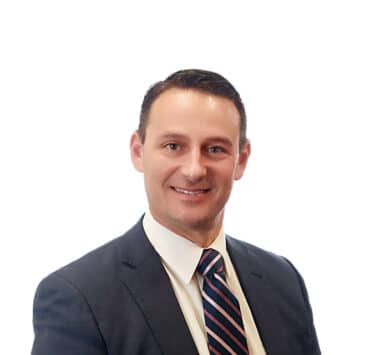When pharmaceutical company Bristol Myers Squibb (BMS) announced it was acquiring Celgene Corporation in January 2019, Deborah Liben had only been at Celgene for two weeks. But after the deal closed in November 2020 and the pharma giant sought to incorporate Celgene’s pioneering products, it tapped Liben to help head the legal strategy for development and commercialization of new cell therapies.
It may sound complicated, but it’s a task that came naturally to Liben, who’s worked in-house in the pharmaceutical industry since 2015 after spending eight years at law firm Kaye Scholer (now Arnold & Porter). Before Celgene and BMS, Liben spent three years as pharmaceutical counsel at Novartis, where she worked on a number of hematology and oncology products and advised on patient support programs across the company’s robust oncology portfolio.
It was that work that led her to join Celgene, which was at an exciting point in its history as it was vastly expanding its hematology portfolio, including in cell therapy. Liben is enthusiastic to take on any challenge to help move forward.
As a Celgene lawyer leading a team at BMS, part of Liben’s job involved handling the integration of the cell therapy legal team into BMS, which was complicated enough before the COVID-19 pandemic threw in even more challenges. As the timeline for launch preparations for the company’s two CAR T launches coincided with the integration of the two companies—and not to mention the overall uniqueness of cell therapy which BMS was first learning—Liben quickly got to work to make these big goals attainable.
Surprisingly, Liben notes that the switch to remote communication and meetings during the pandemic made aspects of the integration easier. Rather than feeling the long distance between Celgene’s Summit, New Jersey, offices and BMS’ Princeton and Lawrenceville offices, switching to virtual communication actually put everyone on equal footing of engaging remotely and helped them remain engaged throughout the process.
“[BMS’ strong history] helped our new legal colleagues find easy frames of reference and allowed them to more readily think outside the box in the way these cell therapies require.”
In order to get the legal teams from both companies acquainted, Liben suggested hosting virtual meetings that would also feature breakout sessions where individual members could do quick meet and greets. “We do a lot of things as a group, but it’s not always easy to meet people,” she says. These one-on-one sessions will give the team a more structured way to expand everyone’s networks—useful connections to help Celgene lawyers integrate and gain alignment in legal advice being provided across the BMS portfolio.
Much of Liben’s early work in the integration also involved educating new colleagues in the BMS law department about CAR T products and the nuances of the business and legal considerations associated with them. “BMS has a really strong history, especially in unique therapeutic areas and technologies,” Liben explains. “This helped our new legal colleagues find easy frames of reference and allowed them to more readily think outside the box in the way these cell therapies require.”
Two of BMS’ most exciting products in hematology are CAR T therapies, which use specially altered T-cells to fight cancer. These products include Breyanzi (previously referred to as liso-cel), which recently received FDA approval, and ide-cel, which is still under FDA review. BMS is only the third pharmaceutical company to have an approved CAR T cell therapy, with Breyanzi being only the fourth product of its kind to receive FDA approval.
For Liben, working on these exciting new products offers her a chance to chart new territory. Because CAR T and other T-cell therapies have only recently received FDA approval, she’s in the unique position of helping drive important decision making while using the best aspects of each heritage company and uniting them to accomplish more.
“We’re really starting at the ground floor,” she says of her team. “We always talk about thinking outside the box, but this is supercharged outside of the box. We sometimes joke, ‘Can we just go back inside the box?’”
So much of her team’s job involves navigating the legal risks of such new products, but also the reputational risk involved in bringing these personalized treatments to patients. This requires a lot of careful risk management and decision-making, which Liben relishes.
“We’re like spokes in a wheel because we have interaction with the patient and the healthcare provider every step of the way.”
“Deb has been critical to BMS’ efforts to bring novel gene therapy treatment options to market and ensure access for patients,” says Michael Labson, partner in Covington’s Food, Drug, and Device practice. “It has been a privilege to partner with Deb and BMS.”
In addition to the legal challenges, Liben and her team also have to consider the supply chain logistics that these new products require. Pharmaceutical supply chains are already complicated on their best days. Normally this refers to a relatively straightforward path from BMS to wholesale distributors to pharmacies to patients. With CAR T, “We’re like spokes in a wheel because we have interaction with the patient and the healthcare provider every step of the way,” Liben explains.
From a legal perspective, the nuances of the supply chain for autologous therapies raise many legal considerations, such as around patient privacy, cell ownership, and doctors’ ability to practice medicine based on their independent clinical judgment. “How can we help patients and doctors to support safe use of our products?” Liben poses. “Because these products are obtained directly from BMS, as the manufacturer, we take on new responsibilities.”
Since January 2021, Liben took over as vice president and assistant general counsel for worldwide hematology and cell therapy commercialization and development law. She now oversees a team of eleven providing legal support for the entire BMS hematology portfolio. BMS has many exciting products to offer patients and healthcare providers, with more new modalities working toward FDA approval in hematology in the coming year. “There’s so much coming, and all of [the products] will bring their own unique considerations and challenges,” Liben notes.
Luckily, these new technologies will be released during a time when the public is hungry and excited for new medical solutions. And under Liben’s leadership, the hematology legal team will be there to support every step of the way.


